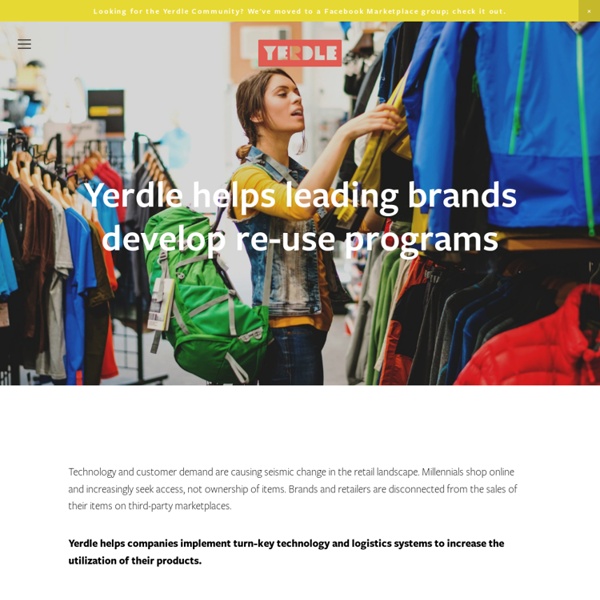



It's a Shareable Life - A Practical Guide to Sharing Economy by Chelsea Rustrum Time Magazine dubbed the Collaborative Consumption one of the top 10 ideas that will change the world. The three co-authors (Chelsea, Gabriel and Alex) of It's a Shareable Life have cumulatively hosted over 100 people on Couchsurfing, earned over $50,000 on Airbnb, coworked from all over the world, and made hundreds of dollars per month sharing their cars – just to name a few. With their hands on experience and observations, this trio will give you the low down on the new sharing economy. - Work from anywhere - Travel the world on a backpacker budget- Live rent free- Find work even in a down economy- Have a new car for every occasion Chelsea, Gabriel and Alex spent the last 12 months researching, filming and writing about the new sharing economy from all angles. We wrote this book from the user perspective with tons of how-tos, case studies and tips and tricks. Now we’re in the process of self-publishing and we need your help. How about an awesome t-shirt your friends will be jealous of?
Amazon et Facebook s’unissent dans le social gifting Le géant du e-commerce a annoncé hier une nouvelle fonctionnalité baptisée Amazon Birthday Gift. S’appuyant sur l’API de Facebook, cette nouvelle offre s’inscrit dans la tendance du social gifting et s’opère en trois étapes. Concrètement, les internautes ont désormais la possibilité d’acheter une carte cadeau sur Amazon, puis d’inviter leurs amis Facebook à participer à cette cagnotte en ligne. Une série de services s’est lancée sur l’offre de cadeaux basée sur les interactions sociales. Crédit photo: Shutterstock, des millions de photos, illustrations, vecteurs et vidéos
Bitcoins, ¿tiene futuro o es el futuro? — Partido de la Red No hay dudas que Internet revoluciona todo lo que toca. Con la creación de esta moneda virtual, ahora le tocó el turno al sistema monetario. Empecemos por aclarar que los Bitcoins son una moneda virtual que todo el mundo puede comprar y vender fácilmente, sin ningún tipo de restricción, como aquellas a las cuáles nos tiene acostumbrado el sistema financiero en general. El otro punto a destacar de esta moneda virtual, creada por Satoshi Nakamoto allá por el año 2009, es otra propiedad opuesta a las tradicionales monedas estatales: es finita. Cabe aclarar que no soy programadora, ni codifico, ni sé cómo “minar” Bitcoins; por ello me quiero centrar, como economista que soy, en el debate acerca si esta moneda tiene futuro o no. Todo este debate que se generó en torno a esta moneda virtual me lleva a pensar que esta bueno el intento de romper estructuras dadas que nadie pone en duda, y a abrir la mente a nuevas posibilidades que antes eran impensadas. Agustina Comelli.
on-line and mobile banking software newsletter License Cyclos The license of Cyclos 4 will not be Open Source like the previous versions of Cyclos were (Cyclos 3 and lower). The main reason is that the development of financial software requires considerable financial resources. In the past we were fortunate to receive grants from several institutions (the Dutch Government, IDB, DOEN), but presently there is not sufficient funding available. Our current investors suggested a business model that allows the development costs to be shared among the larger users (that can afford it financially). STRO is working towards a business plan with a commercial approach, which at the same time will allow social initiatives to benefit from a free version. Statements: Release schedule
Freeworlder.org - Being a Freeworlder (Press Release July 2013) Details Published: Wednesday, 10 July 2013 09:16 Written by Colin Turner Hits: 6175 Being a Freeworlder Colin Turner (a.k.a. freeworlder), believes that a world without money is possible and is about to put his 'no-money' where his mouth is to prove it. Colin, founder of the The Free World Charter movement, which outlines the base principles for a money-free society, is all set to embark on a round-the-world odyssey on this July without money, relying only on the good will of people and his own wits to get around. Irishman Colin, 44, says: “I believe that a world without money is not just possible, but preferable – and urgently necessary for humanity to progress.” He continues, “We humans are a social species. “I want to do my part to show that life beyond money is not just possible, but better. Colin, a professional guitarist and singer, will be leaving behind his music career in Dublin on the 28th of July and is looking for support from people around the world to help him on his journey.
J'ai Pas Envie : Déléguez tout ce que vous voulez ! The Moneyless Manifesto | Mark Boyle Sharing in your Neighbourhood Terms and Conditions Page Be Nice Do unto other, etc... That sums most of it up but to be a bit more specific... Don't do anything mean. If you act badly, for example if you upload a picture of your bottom or anything, we are allowed turn off your account, and you're not allowed to get cross about it. If the site breaks, it's not our fault and you mustn't sue us. ...and to be even more specific, and legalistic, in case anyone does actually sue us: About StreetBank Streetbank (“SB” or “we”) and its affiliates, successors, parents, subsidiaries, assigns, licensees, and designates (collectively and individually “Streetbank” ) provide you access to the Streetbank web site (the “Site” ) subject to the terms and conditions of use set forth below (the “Terms of Use” ). 1. Streetbank is available to use free of charge. 2. Content Guidelines. Other Restrictions on Use. 3. 4. 5. Streetbank’s Privacy Policy can be read in full in the Privacy Statement – see tab at the bottom of the page. 6. 7. 8.
Blog do Mútuo